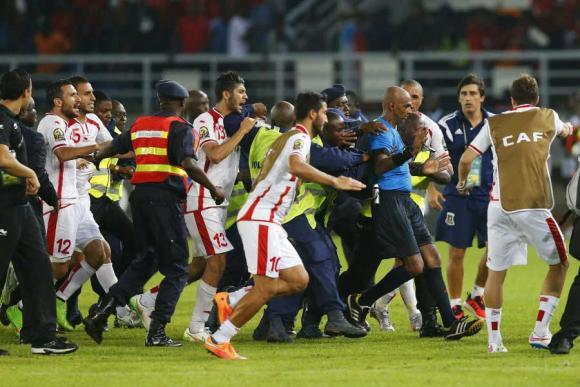AFCON 2015: Tunisia Given Ultimatum by CAF Amid Ongoing Disciplinary Row
By BBC Sport Africa
The Confederation of African Football (CAF) has issued a final warning to the Tunisian Football Federation (FTF), threatening to disqualify the Carthage Eagles from the 2017 Africa Cup of Nations unless they comply with disciplinary directives by March 31, 2015.
This latest development follows Tunisia’s refusal to apologise for accusations of bias and unethical conduct levelled against CAF and its officials, in the wake of their controversial quarter-final elimination by host nation Equatorial Guinea. The match, marred by a highly disputed penalty awarded to the hosts in stoppage time, ended Tunisia’s campaign in dramatic and contentious fashion.
CAF Demands Apology or Proof
In a formal letter, CAF had given the Tunisian FA until midnight on February 5 to either issue a written apology or present “irrefutable and tangible evidence” supporting their serious allegations against the organisation. Tunisia failed to meet this deadline, prompting a meeting of CAF’s disciplinary committee on February 6 in Malabo.
Following deliberation, the committee extended the deadline for compliance to March 31, 2015, giving Tunisia one last opportunity to apologise or provide clear evidence to substantiate its claims. If it fails to do so, the CAF Executive Committee will move to disqualify Tunisia from participating in AFCON 2017.
Wadie Jary Suspended from CAF Activities
As part of the disciplinary measures already enacted, Wadie Jary, President of the Tunisian Football Federation, has been suspended from all CAF-related activities. Jary, who also resigned from his role in the CAF Africa Cup of Nations Organising Committee in protest, is seen as a central figure in the standoff between Tunisia and CAF.
CAF’s actions underscore its commitment to defending the integrity of its officials and its competitions, as well as maintaining discipline among its member associations.
A Growing Rift
The row has highlighted tensions between CAF and its member federations, particularly in high-stakes situations where officiating decisions can have profound consequences. Tunisia’s refusal to back down suggests that the FTF views its position as principled, but the growing cost of defiance now includes the real possibility of missing out on future continental competition.
With the 2015 AFCON final just days away, CAF now finds itself not only managing the conclusion of the tournament but also navigating an increasingly complex disciplinary crisis.












